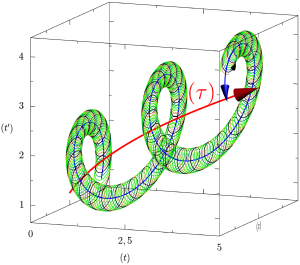Which first principles for mathematical modelling in biology?
Rendiconti di Matematica e delle sue Applicazioni
Like theoretical physics, theoretical biology is not just mathematical modeling. Instead, it should strive to find principles to frame experiments and models.
Abstract
Like theoretical physics, theoretical biology is not just mathematical modeling. Instead, theoretical biology should strive to find suitable first principles to ground the understanding of biological phenomena and ultimately frame biological experiments and mathematical models. First principles in physics are expressed in terms of symmetries and the associated conservations, on the one side, and optimization on the other side. In biology, we argue instead that a strong notion of variation is fundamental. This notion encompasses new possibilities and the historicity of biological phenomena. By contrast, the relative regularity of some aspects of biological organisms, which we call constraints, should be regarded as the consequence of a mutual stabilization of the parts of organisms. We exemplify several aspects of this framework with the modeling of allometric relationships. Our change of perspective leads to reconsider the meaning of measurements and the structure of the space of description.
Keywords: Allometry, first principles, Historicity, invariants, theoretical biology, Variability






